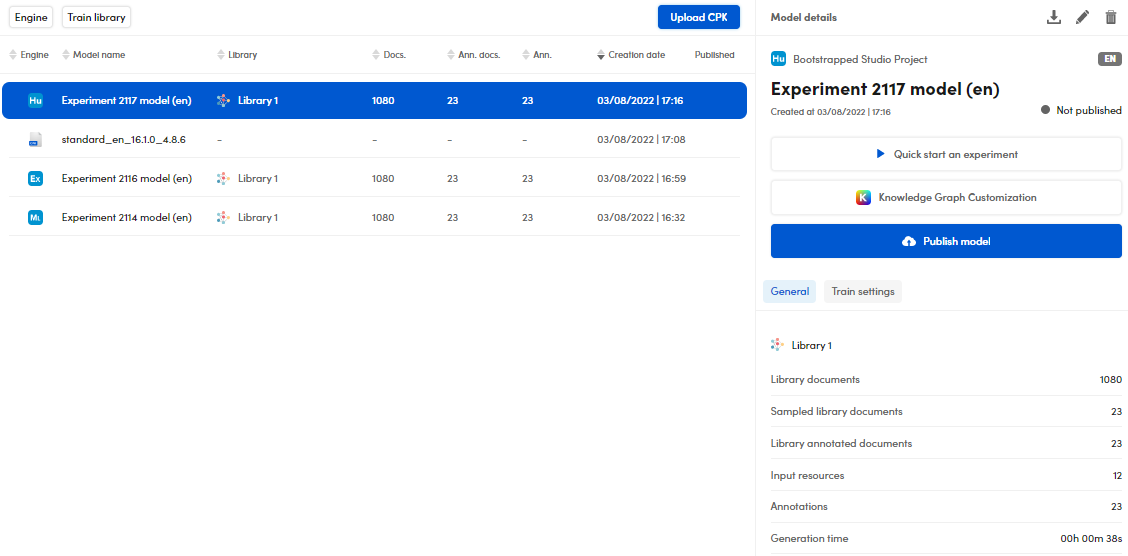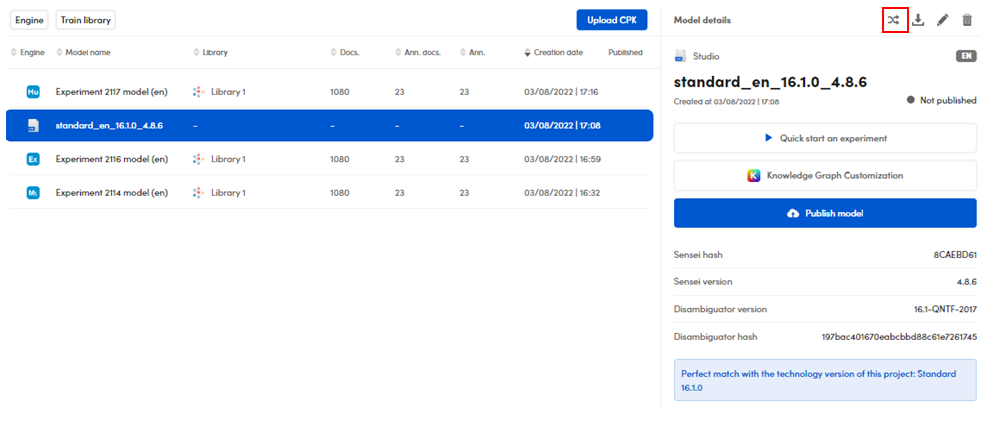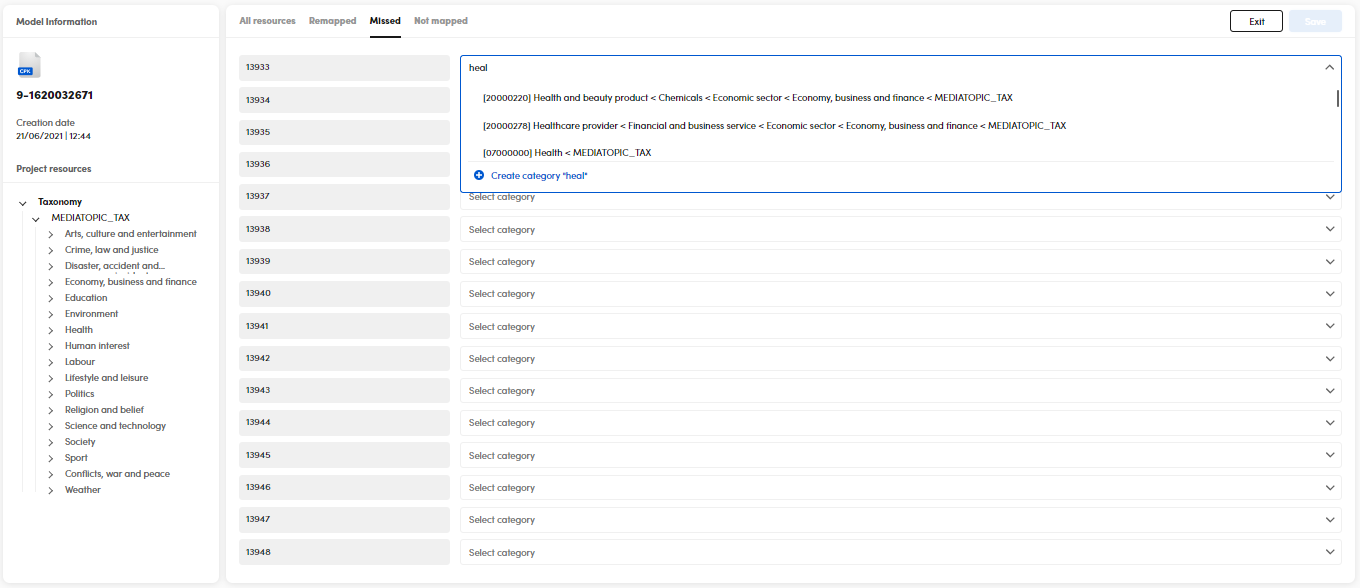Manage models
Overview
Models are the text analysis engines produced by either running experiments or importing CPK files.
To access the list of all the models generated for the project, select the Models tab.

Sort the list
To sort the list, select a column header. To invert the sort order, select the column header again.
Filter the list
To filter the models by engine, select Engine.
To filter the models by training library, select Train library.
Change a model name
To change a model name, select Edit model name  on the toolbar of the right panel.
on the toolbar of the right panel.
Delete a model
To delete a model name, select Delete model  on the toolbar of the right panel.
on the toolbar of the right panel.
Export a model
To export a model:
- Select Export model
 if the model is generated with an Auto-ML Categorization engine or Export CPK
if the model is generated with an Auto-ML Categorization engine or Export CPK  in the other cases.
in the other cases. -
In the Export model window (or Export CPK window), type the model name in File name or confirm the suggested one, then select:
- Export model

Or:
- Export CPK (in case of a CPK)

- Export model
-
Select Download either in the dialog or in the notification in the lower right corner.
Upload a CPK
See upload a CPK file.
Start an experiment with a specific model
To start an experiment with a specific model:
- Select the model.
- Select Quick start an experiment.
- In the Start an experiment dialog, type the experiment name, select a library, then select Next.
- Check the summary in the Start an experiment, Summary dialog, then select Start.
Create a Knowledge Graph Customization project
To create a CPK-based Knowledge Graph Customization project:
- Select a CPK from the list of models.
- Select Knowledge Graph Customization .
- In the dialog, type a name, an optional description and select Create.
Note
The project creation will occur as a background task.
Publish and unpublish a model
The models marked with a green dot in the Published column are those that have been published, that is made available for inclusion in workflows.
To publish a model, select it from the list then select Publish model on the right panel.
Note
If you publish a generated model—not an imported CPK—you will be asked to confirm or change the model name.
To unpublish a model, select Unpublish model on the right panel.
See the general and the training settings
To see the general training settings, select the General and the Train settings sub-tabs.
Related experiments
To check related experiments, if any, read the Related experiments sub-panel.
Double-click the experiment to view its quality.
Remapping
Since the imported CPK model may differ from the project you are working on, for example because it is produced at different times or by different users, it is sometimes necessary to remap it.

Select Remap CPK  if you need to remap the resources (categories in the categorization projects) between the CPK imported model and the existing project.
if you need to remap the resources (categories in the categorization projects) between the CPK imported model and the existing project.
The remap view is displayed and the focus is on the imported CPK model.

It is divided into two panels:
-
The left one shows the imported Model Information and the existing Project resources.
-
The right one shows four tabs that help you in the project remapping:
All resources
This tab shows the complete resources of the imported model and if and how they have been remapped.
If no automatic remapping occurred, no match will be shown. Therefore, it will be possible to perform a manual remapping, if it is considered appropriate.
If you want to manually remap a resource from the imported model to a category of the existing project:
- Select a category from the list box on the right side.
- Select Save to confirm.
This mapping will be displayed in the Remapped tab.
Remapped
This tab shows the remapped items, both manually and automatically.
Missed
This tab shows the imported model resources that don't have a mapping with the existing model resources.
If you need to remap a resource from the imported model to a category of the existing project:
- Select a category from the list box on the right side.
- Select Save to confirm.
This mapping will be displayed in the Remapped tab.
Not Mapped
This tab shows the existing resources that don't have any mapping with the imported resources.